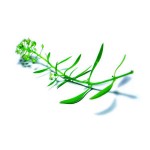 Clay
Clay
Clay (especially bentonite clay) is said to relieve the following problems (or symptoms of the following problems): abscesses, acne, arthritis, athletes foot, bites, boils, cramps, eczema, eradicates finger/toe nail fungus, psoriasis, scars, skin cancer, splinters (draws them out), sprains, stings, surface infections & swelling
Epsom Salt
Epsom salt added to shampoo will soak up excess oil and clean your hair more thoroughly.
Epsom salt and cool water will reduce the pain and inflammation of sunburn.
Epsom salt and warm water will help relieve muscle pain and body aches, as well as detoxify and relax, during a soak.
Epsom salt can be used on insect bites to reduce pain and itching.
Epsom salt can draw out a splinter for easier removal if the affected area is soaked in it.
Epsom salt can reduce foot odor. Soak your feet in a cup of epsom salt and two gallons of water.
Epsom salt can treat toenail fungus if they are soaked three times a day.
Epsom salt can volumize hair when left in for 20 minutes with equal parts deep conditioner before being rinsed out.
Epsom salt is a gentle exfoliator, and can be mixed with oil to create a paste.
Epsom salt is a natural laxative. Mix one teaspoon in a glass of water and drink.
Epsom salt will deter slugs if sprinkled around their pathway.
Epsom salt will make increase plant growth, making it an effective fertilizer.
Homemade Bar Soap
Drive screws into a bar of soap to lubricate them before screwing them into wood; they will go into the wood easier.
Remove a broken light bulb from its socket by sticking a bar of soap into it and twisting.
Rub a bar of soap over metal drawer runners to facilitate opening and closing.
Rub a bar of soap over stuck zippers to un-stick them, or lubricate one before the problem occurs.
Rub a bar of soap over the bottom of an iron skillet before cooking over an open fire to prevent build-up on the bottom.
Rub a saw blade with soap to make it cut better (be careful!).
Scrape your nails over a bar of soap before gardening to keep dirt from collecting under your nails.
Use a fabric-covered bar of soap as a pincushion that will also lubricate the pins!
Use soap as a fabric marker; it will wash right off when you are finished.
Hydrogen Peroxide
Add a cup of peroxide to a load of white laundry as a bleach alternative to boost brightness.
Add a little hydrogen peroxide to water that you spritz on plants, to help ward off fungus.
Clean kitchen surfaces with hydrogen peroxide; pour it on, let it bubble for a while, then scrub and rinse.
Clear up acne and pimples by dabbing with hydrogen peroxide.
Create highlights in your hair with a 50/50 solution hydrogen peroxide and water sprayed onto wet hair.
Preserve left-over salad by spritzing with a half cup of water and one tablespoon hydrogen peroxide before draining, covering and refrigerating.
Remove dirt and pesticides from fruits and vegetables by washing with hydrogen peroxide and water, then rinsing well.
Remove excess ear wax by putting several drops of oil (olive, almond, etc.) to your ear, followed by several drops of hydrogen peroxide. Let set a few minutes before tipping your ear to drain out solution and wax.
Soak musty towels, etc. in a 50/50 solution of hydrogen peroxide and vinegar for 15 minutes before washing to de-mustify them.
Soak sponges in a 50/50 solution of hydrogen peroxide and water to clean them before rinsing thoroughly.
Soak stained fabrics in a 3% hydrogen peroxide solution before laundering to remove stains.
Spray hydrogen peroxide on items that need to be cleaned safely (toys, lunch boxes, doorknobs, etc.).
Tough-to-clean baking pans can be soaked in a paste of hydrogen peroxide and baking soda, before scrubbing, to make cleaning easier.
Use a 50/50 solution of hydrogen peroxide and water as mouthwash to remedy bad breath.
Use hydrogen peroxide along with baking soda and salt to brush and whiten teeth.
Use hydrogen peroxide to clean and de-germ your toothbrush between uses.